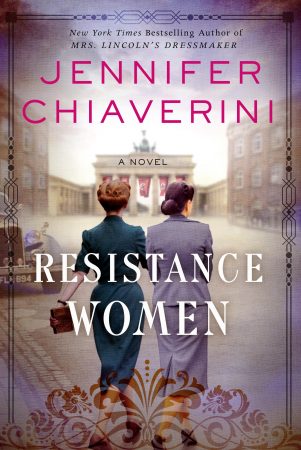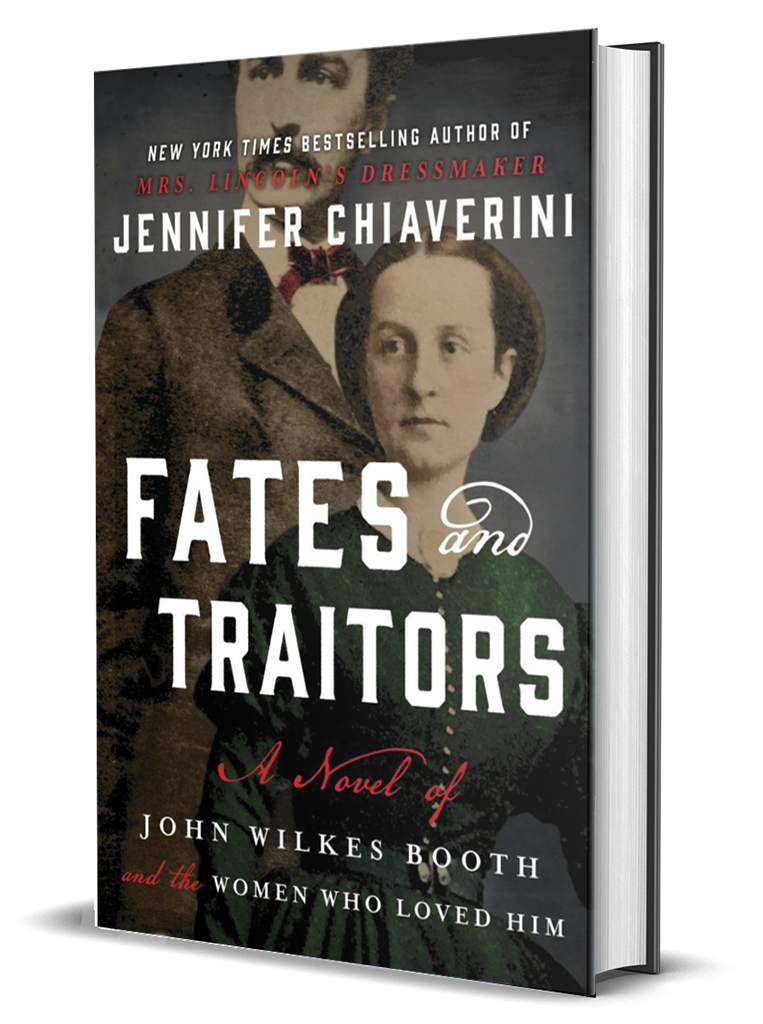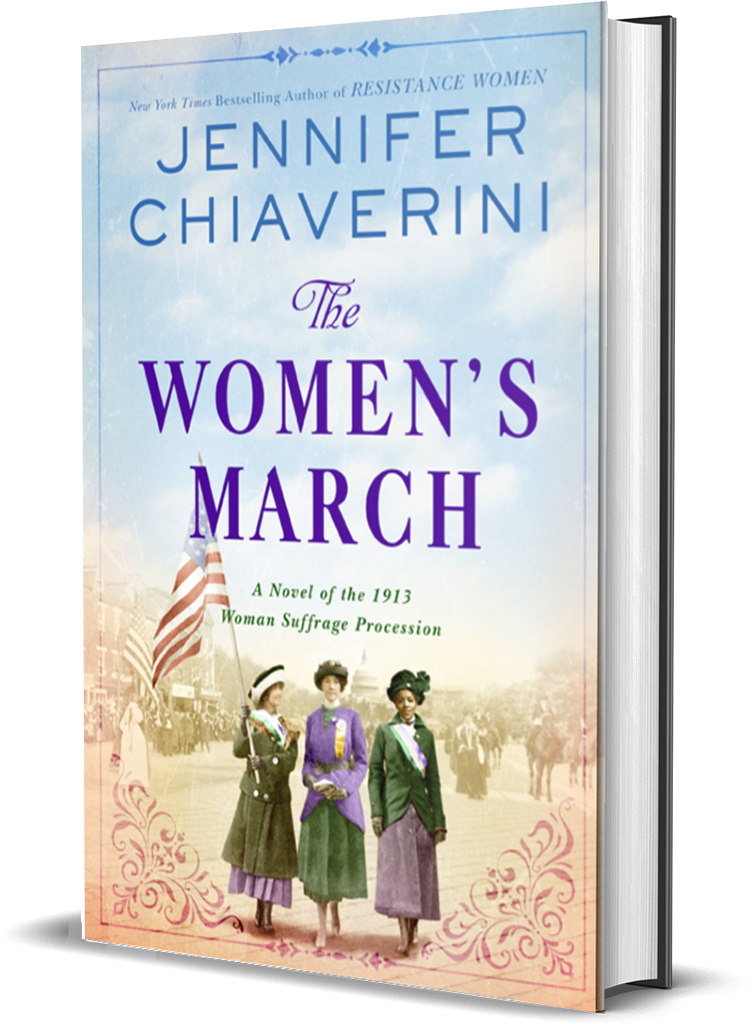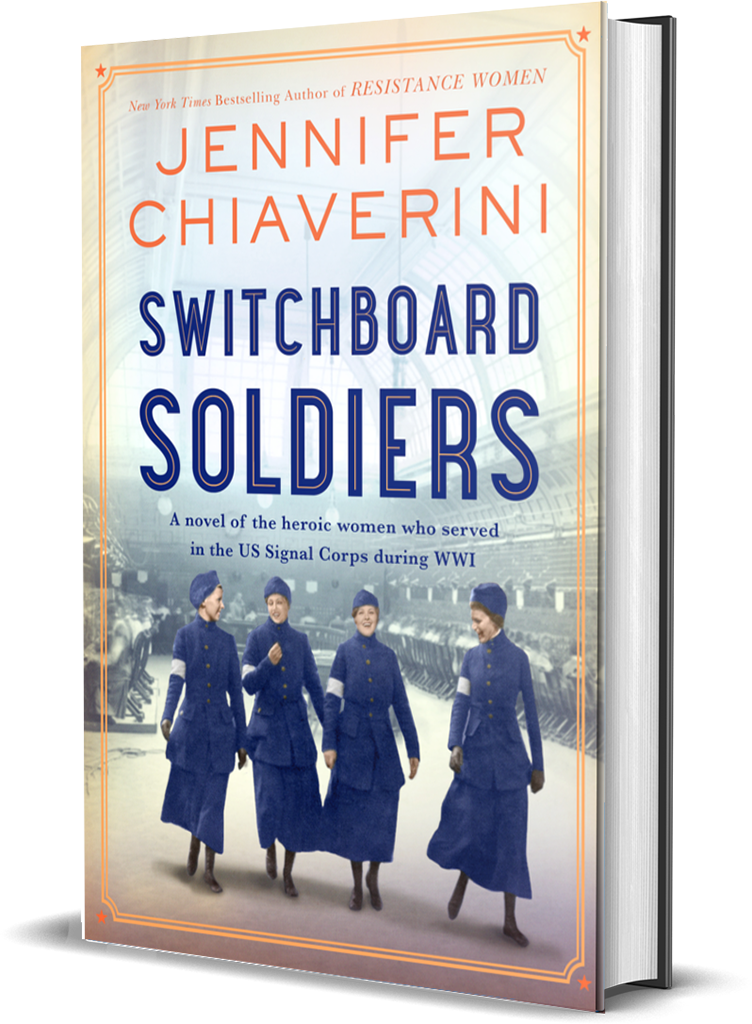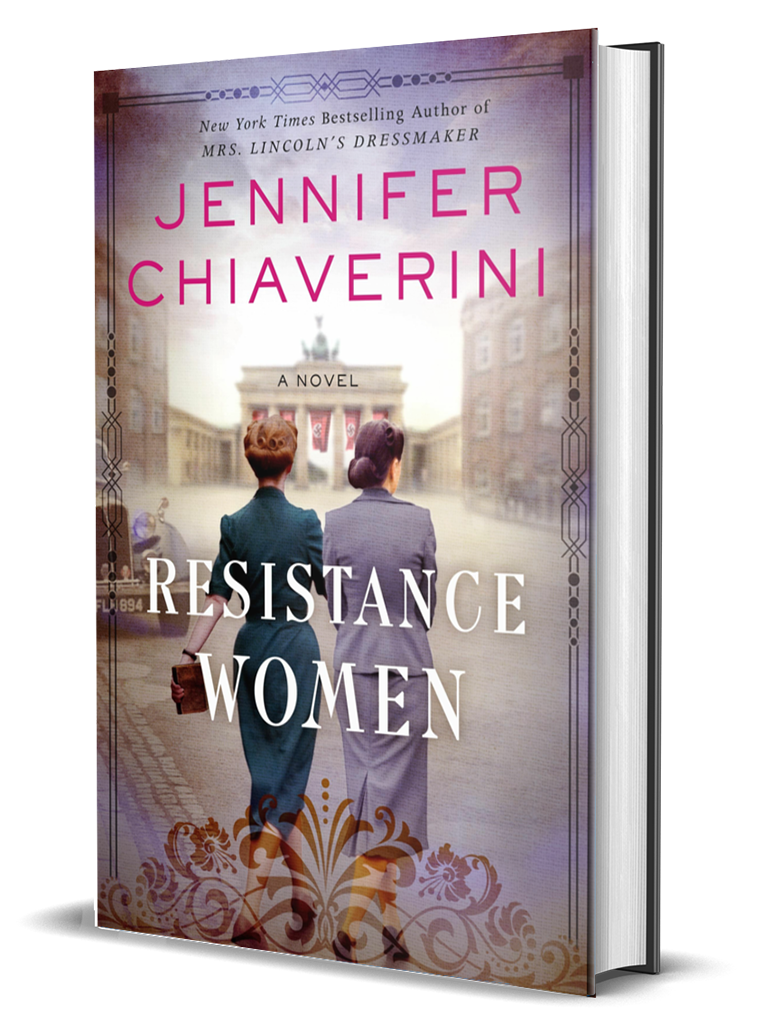
Resistance Women
*A JUNE 2019 INDIE NEXT PICK.*
From the New York Times bestselling author of Mrs. Lincoln’s Dressmaker comes an enthralling historical saga that recreates the danger, romance, and sacrifice of an era and brings to life one courageous, passionate American—Mildred Fish Harnack—and her circle of friends who waged a clandestine battle against Hitler in Nazi Berlin.
After University of Wisconsin graduate student Mildred Fish marries brilliant German economist Arvid Harnack, she accompanies him to his German homeland, where a promising future awaits. In the thriving intellectual culture of 1930s Berlin, the newlyweds create a rich new life filled with love, friendships, and rewarding work—but the rise of a malevolent new political faction inexorably changes their fate.
As Adolf Hitler and his Nazi Party wield violence and lies to seize power, Mildred, Arvid, and their friends resolve to resist. Mildred gathers intelligence for her American contacts, including Martha Dodd, the vivacious and very modern daughter of the U.S. ambassador. Her German friends, economist and aspiring playwright Greta Kuckoff and literature student Sara Weitz, risk their lives to collect information from journalists, military officers, and officials within the highest levels of the Nazi regime.
For years, Mildred’s network stealthily fights to bring down the Third Reich from within. But when Nazi radio operatives detect an errant Russian signal, the Harnack resistance cell is exposed, with fatal consequences.
Inspired by actual events, Resistance Women is an enthralling, unforgettable story of ordinary people determined to resist the rise of evil, sacrificing their own lives and liberty to fight injustice and defend the oppressed.
Praise for Resistance Women
Read an Excerpt from Resistance Women
Prologue
November 1942
Mildred
The heavy iron doors open and for a moment Mildred stands motionless and blinking in the sunlight, breathless from the sudden rush of cool, fresh air caressing her face and lifting her hair. The guard propels her forward into the prison yard, his grip painful and unyielding around her upper arm. Other women clad in identical drab, shapeless garments walk slowly in pairs around the perimeter of the gravel square. Their cells within the Hausgefängnis of the Gestapo’s Prinz-Albrecht-Strasse headquarters are so cramped that they can scarcely move, and now the prisoners spread their arms and lift their faces to the sky, like dancers, like dry autumn leaves scattered in a gust of wind.
How many of them would never again know more freedom than this?
“No talking,” the guard reminds her, shoving her into the open yard. Stumbling, she regains her footing and begins treading a diagonal path between two corners of the high encircling walls, forbidden to walk with the others. She has done this ten precious minutes each day since her arrest two months before, and her stiff, aching limbs fall into the routine before she is conscious of it.
Deliberately, she holds her head up and takes long, steady strides in a false show of strength that costs her dearly. She has lost weight, and from the strands she finds on her bunk each morning, she knows that her once luxuriant blond hair has gone brittle and white. Coughs rack her almost constantly. Earlier that day she brought her hand away from her mouth and nose to find her palm spotted with blood. There is no medicine to spare for people like her, traitors to the Third Reich—although is it correct to call her a traitor, since she is American?
It does not matter, not to her jailers and not to the law, to whom she is American by birth, a dual citizen by marriage. To Adolf Hitler it matters very much that she is an American, or so she has been warned. And yet Germany is her adopted home, the birthplace of her beloved husband. It was because she could not bear to be parted from him that she had remained in Berlin even after the United States government warned its citizens to leave the country.
Arvid. Her heart aches as she imagines him languishing in a cramped, cold, dimly lit cell like her own, somewhere not far away, but impossibly beyond her reach. Their trial is pending. Perhaps they will be reunited in the courtroom, they and all of their brave, unfortunate friends in the resistance cell the Nazis call Rote Kapelle, Red Orchestra, for the illicit “music” they had broadcast to enemies of the Reich. How strange it is that the Gestapo considered them so formidable an enemy that they merited a sinister name, like something plucked from a spy novel—and yet among their diffuse network of writers, teachers, economists, bureaucrats, office workers, and laborers, they count not one professional spy.
They are ordinary people from every walk of life. Her dear friend Greta Kuckhoff grew up poor, earned her education, and is determined to provide her young son with a better life. Sara Weitz enjoyed wealth and privilege until the Nazis declared the Jews undesirable and robbed them of every civil and human right. Mildred’s heart aches as she thinks of Sara and the other students in their circle—brave, determined, idealistic, with their whole lives ahead of them, risking more than they can fully understand. Where are they now? Scattered, some imprisoned elsewhere, some in hiding, others fled to distant lands. If only Mildred could seek help from Martha Dodd one last time, but Martha returned to the United States after her father was relieved of his duties as ambassador. Even if Mildred could somehow get word to her impulsive, outspoken friend, what could Martha do?
A fit of coughing seizes her. She doubles over, clutching her shoulders to brace herself until the hoarse racking stops. When she can, she straightens, inhales deeply, ignores the foreboding rattle in her lungs, and resumes her diagonal path across the yard—
And almost stops short from astonishment. Another prisoner holds her gaze as she treads along the edge of the prison yard, her stricken sympathy plain for Mildred to see. The woman is too pale and thin to be new to the prison; surely she is aware of the grim consequences she will face if the guards see her regarding Mildred with such concern, after she has been set apart as a warning to others. The woman must know, for she quickly looks away. Mildred’s heart sinks, only to rise again when the woman glances back and offers her the barest trace of an encouraging smile.
Mildred feels new strength flow through her. It is just a glance, but it nourishes her starved soul. Her heart pounds as she works out the timing of her diagonal strides and the woman’s slow circuit of the yard. She quickens her pace, not enough to draw the guards’ attention, but sufficiently that eventually her path and the woman’s will intersect in the far corner of the yard. All the while they steal glances at each other, silent messages that they are not alone, that there is always hope, that when one least expects it a shaft of light might pierce the darkest sky.
And then they intersect, though they cannot pause long enough even to touch fingertips.
“Take care of yourself,” Mildred murmurs as they shuffle toward each other and away. “I am in cell 25. Don’t forget me when you get out. My name is Mildred Harnack.”
I am Mildred Harnack, she repeats silently to herself as she turns to cross the yard again. Mildred Fish Harnack. Wife, sister, aunt. Author, scholar, teacher. Resistance fighter. Spy.
Don’t forget me.


